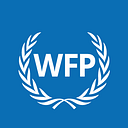Gabriela Alvarado: Evaluation is a door opener with government
WFP country director in the Dominican Republic shares her views on how evaluations help show the big picture
As a new country director, what use was the joint decentralized evaluation with Government on malnutrition prevention?
The decentralized evaluation helped us tremendously. For me, coming in as a new country director, it was one of the first conversations I had with the government who was relatively new, just coming out of Covid.
The joint evaluation was a door opener to start having a neutral conversation on what WFP can do to support the Government in the Dominican Republic.
It was a way to introduce some of WFP’s work from a neutral perspective: a new government, a new country director, and it enabled us to have these kinds of conversations that would’ve been difficult to initiate otherwise.
The Dominican Republic country strategic plan evaluation (2019–2023) will be presented at the November 2023 Board session. Can you share some insights on its particular usefulness in planning and preparing the new CSP?
There were two key points from the evaluation that stood out from our side. Firstly, it really helped us identify what we need to focus on as WFP: what we need to start, what we need to stop, and what we need to continue. And the second point, which was extremely useful, was to help get an objective overview of what we have been doing, and where we need to go moving forward for the next country strategic plan.
It’s sometimes difficult to have a comprehensive understanding of what WFP has been doing in the past five years with multiple entities and multiple partners.
The evaluation provided this big picture.
The WFP Office of Evaluation now has three ongoing impact evaluation windows covering the topics of climate change & resilience, school feeding, and gender & cash-based transfers, as well as a cross-cutting workstream for humanitarian interventions. How can impact evaluation evidence shed light on some of the Dominican Republic’s pressing evidence needs?
Impact evaluations are one of the areas that we are most excited about. The Dominican Republic works on country capacity strengthening, with the Government, and we’ve been supporting anticipatory action for over five years now.
The impact evaluation evidence will be really helpful to identify what was the return on investment, why the government should think about anticipatory action, and what was its impact. The evaluation will help us to find those answers.
What has been your single biggest lesson learnt from an evaluation?
The biggest lesson that I’ve learnt in terms of evaluation is related to its applicability. As I mentioned, I am a new country director, and the joint evaluation allowed me to give something tangible to the government. There was evidence based on the work WFP has been doing.
This helped me translate into practical outputs what we need to do, to ground the work of WFP in the Dominican Republic.
